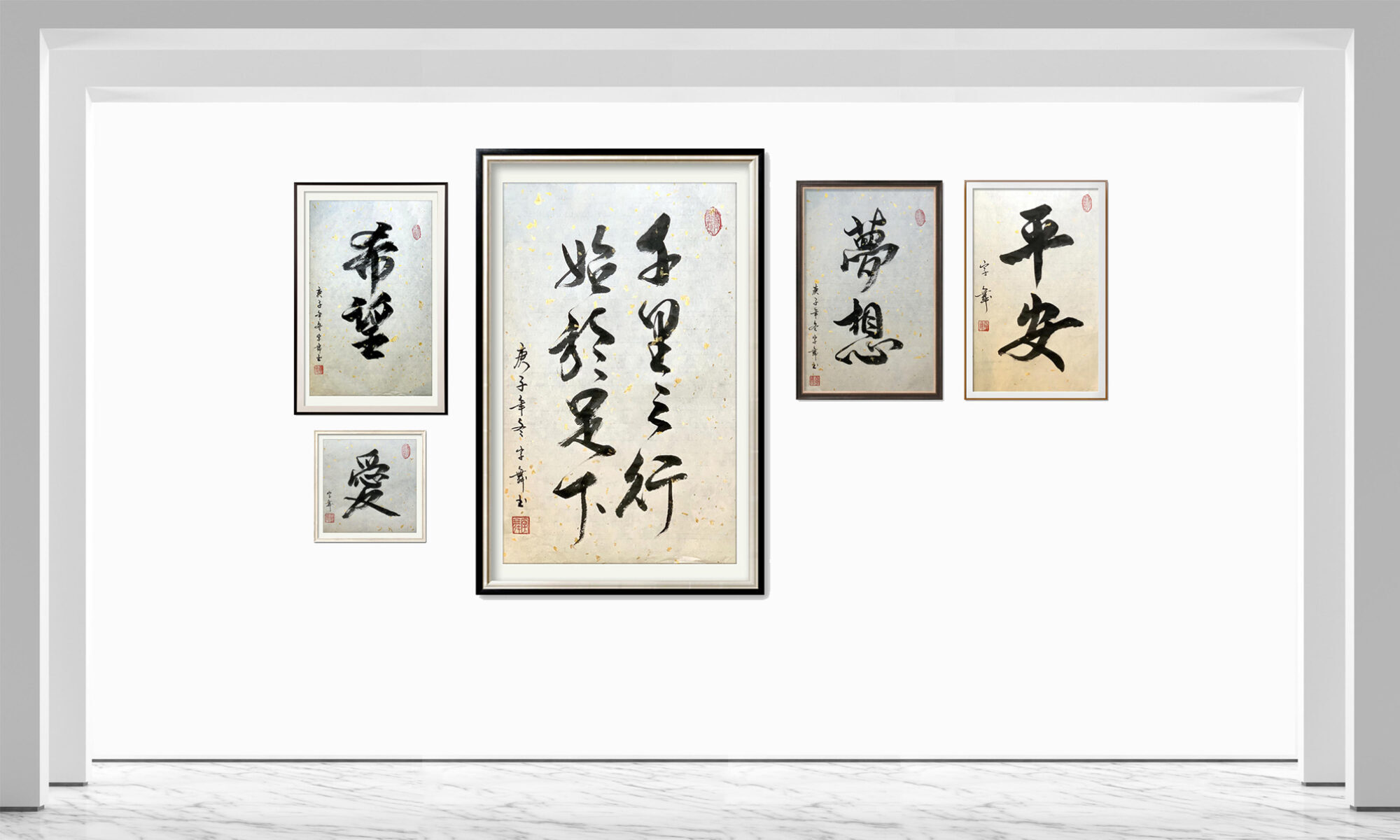中文原文﹕
元和天子神武姿,
彼何人哉軒與羲。
誓將上雪列聖恥,
坐法宮中朝四夷。
淮西有賊五十載,
封狼生貙貙生羆。
不據山河據平地,
長戈利矛日可麾。
帝得聖相相曰度,
賊斫不死神扶持。
腰懸相印作都統,
陰風慘澹天王旗。
愬武古通作牙爪,
儀曹外郎載筆隨,
行軍司馬智且勇,
十四萬眾猶虎貔,
入蔡縛賊獻太廟,
功無與讓恩不訾。
帝曰汝度功第一,
汝從事愈宜為辭。
愈拜稽首蹈且舞:
金石刻畫臣能為,
古者世稱大手筆,
此事不係於職司,
當仁自古有不讓。
言訖屢頷天子頤。
公退齋戒坐小閣,
濡染大筆何淋漓。
點竄堯典舜典字,
塗改清廟生民詩。
文成破體書在紙,
清晨再拜舖丹墀。
表曰臣愈昧死上。
詠神聖功書之碑。
碑高三丈字如斗,
負以靈鰲蟠以螭。
句奇語重喻者少,
讒之天子言其私。
長繩百尺拽碑倒,
麤沙大石相磨治。
公之斯文若元氣,
先時已入人肝脾,
湯盤孔鼎有述作,
今無其器存其辭。
嗚呼聖皇及聖相,
相與烜赫流淳熙。
公之斯文不示後,
曷與三五相攀追?
願書萬本誦萬過,
口角流沫右手胝,
傳之七十有二代,
以為封禪玉檢明堂基。
英文翻譯 / English Translation﹕
The emperor of the Yuanhe era was holy and mighty,
Who was he if not another god comparable to the ancient Xuanyuan and Fuxi.
He was determined to emerge from former eras' disgrace and imperial radiance revive,
And sit on high in the Hall of Ordinance to receive allegiance of all foreign tribes.
For fifty years, west of the State of River Huai had been troubled by rebels,
Those wolves and hyena had been breeding generations of ravenous wildcats.
They held on not to geographical strongholds but plains,
Seemingly commanding even the sun, they brandished their spears and pikes.
Emperor Xianzong had the help of a fine premier by the name of Pei Du,
Who by the will of gods rebels' assassination survived.
With the seal of a premier by his waist he was given an army to command,
On a gloomily windy day, they marched out with banners in the name of the empire.
He had Li Suo, Han Gong Wu, Li Dao Gu and Li Wen Tong as his vanguards,
And many civil servants attending as military secretaries by his side,
His marching lieutenant Han Yu was wise and brave,
One hundred and forty thousand solders fought like bears and tigers,
After Caizhou was quelled and the head rebel caught as an offering to the Great Shrine,
Boundless was the emperor's grace as he their merit, reward and modesty umpired.
The emperor said: “Pei Du, your achievement ranks first and foremost,
Your subordinate Han Yu should for this event an essay write.”
Overwhelmed with joy Han Yu kneeled and bowed in appreciation and said:
“A composition for a stone monument, that I am able to provide,
In the old times they call such a person a man with an exaggerated brush,
This is a matter of nothing to do with official position or rank,
And modesty never applies when it comes to shouldering benevolent acts.”
His words had the emperor nodding again and again to his approval emphasise.
After the assembly Han had an ablution and entered into abstinence, on a pavilion
An uninhibited writing with exhaustive details came from his brush of literary style.
He easily adapted from the volumes on Yao and Shun to Xianzong describe,
And borrowed from chapters within the Book of Songs as he poetised.
His composition was like no other put on display on paper,
At dawn he laid it out on the red steps inside the Palace and to the emperor he recited.
Then he submitted it and said: “you foolish subject now dares his life to this present.”
In praise of the emperor's feats, such writing was to be on a monument inscribed.
A thirty-feet monument in stone was erected with large characters,
Carved with vignettes of dragon totems and sea tortoises at the base to support signify.
For the sentences were exceptional and profound, very few could comprehend,
Accusing him of selfish motives, some approached the emperor to him vilify.
The monument was pulled down with a rope of a hundred feet,
They sanded with grits and stones till there was nothing left of the inscribed.
Nonetheless Han's composition was like integrity inherent of heaven and earth,
Its spirit had been readily absorbed by all and taken root deep inside.
Like the inscriptions on the plate of Tang and the tripod of Kong,
No longer in existence are those vessels, yet those writings have survived.
Aye, the holy emperors and exceptional premiers of history
Left their eminence clear and aglow for ages that followed.
Since Han's composition had not the opportunity to be preserved for posterity,
Why don't I and a few friends follow it with devotion?
We are willing to transcribe it and recite it ten thousand times each,
Till we are foaming at the mouth and our right hand callused and coarse,
So that it could be passed on for seventy two generations to come,
As a model for prayer box inscriptions and litanies for enthronement and ceremonies.
.

